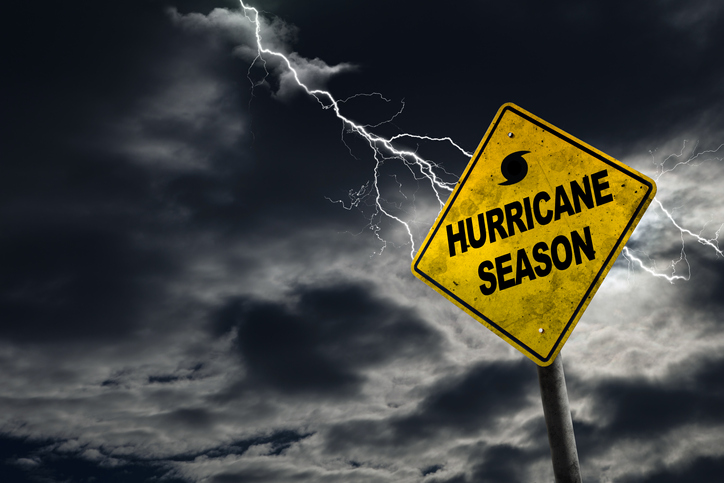
The Gulf Coast is prone to hurricanes. The hurricane season in the area begins around June and lasts until November. Hurricanes can be both destructive to property and a threat to life, so you should be aware of what to do if one is approaching.
Here are a few pointers to help keep you, your family, and your belongings safe during hurricane season.
Prepare
As soon as you hear that a hurricane is likely to hit your area, begin your preparations. Hurricane warnings often occur 36 hours before a tropical storm. This means that gale-force winds are expected, a condition which may or may not result in a hurricane. Don’t take chances. And don’t leave everything until the last minute.
Fill up the tank in your car as gas stations may be out of action for some time.
Have enough supplies in your safe place, like a basement, to last a few days if needed. This includes food, water, first-aid kits, medication, emergency lights, diapers, and anything else that you or a family member might need.
Charge up emergency lights, as well as phones and other devices such as power banks and laptops.
In addition, get your whole family prepared. This means letting everybody know where to go and what needs to be done.
During a hurricane
Don’t panic when the storm shakes your house and rattles your windows. Take action that will help ensure your safety.
- Shut windows, doors, and unplug all electrical appliances. Keep a radio handy to monitor the storm. Don’t forget to have a flashlight with you along with plenty of spare batteries.
- Turn off your circuit breaker to prevent power surges in case lightning hits your home. If this happens, stop using appliances or devices that are wired. Don’t wash your hands, stay away from metal-framed windows, and don’t go barefoot. Lightning that hits your house can connect to electrical wiring, water pipes, gutters, and wall outlets.
- Be prepared to be without electricity for a few days.
- Everything that can shake, rattle, or roll should be secured including knick-knacks, toys, books, and so on. In addition to protecting your stuff, securing them prevents the possibility of household items becoming projectiles that can inflict injury and cause heavy damage.
- Make sure you have cash with you. You can’t swipe credit cards if the power is out and ATM machines may be down as a result of the hurricane.
After a hurricane
So, you have seen the end of a storm and decided to examine the level of destruction.
- Assess the damage to your property from a safe distance.
- Starting from your house, arrange your furniture and return things to their place.
- Clean your living space thoroughly.
- When outside, don’t touch fallen wires and avoid places where broken power lines are clustered together.
- Wait for authorized personnel to issue protocols before you remove dangerous objects around your home, including clearing debris from a damaged roof.
For more information, visit the Emergency Info page of Florida’s emergency management division.
There’s more to Florida than hurricanes. Discover the best of what makes this the Sunshine State. The Connie Cabral Group will be happy to help. To learn about your real estate options here, call 305.776.0899 or email Connie(at)ConnieCabral(dotted)com.
 Connie Cabral Group
Connie Cabral Group
 Connie Cabral Group
Connie Cabral Group

Follow Us